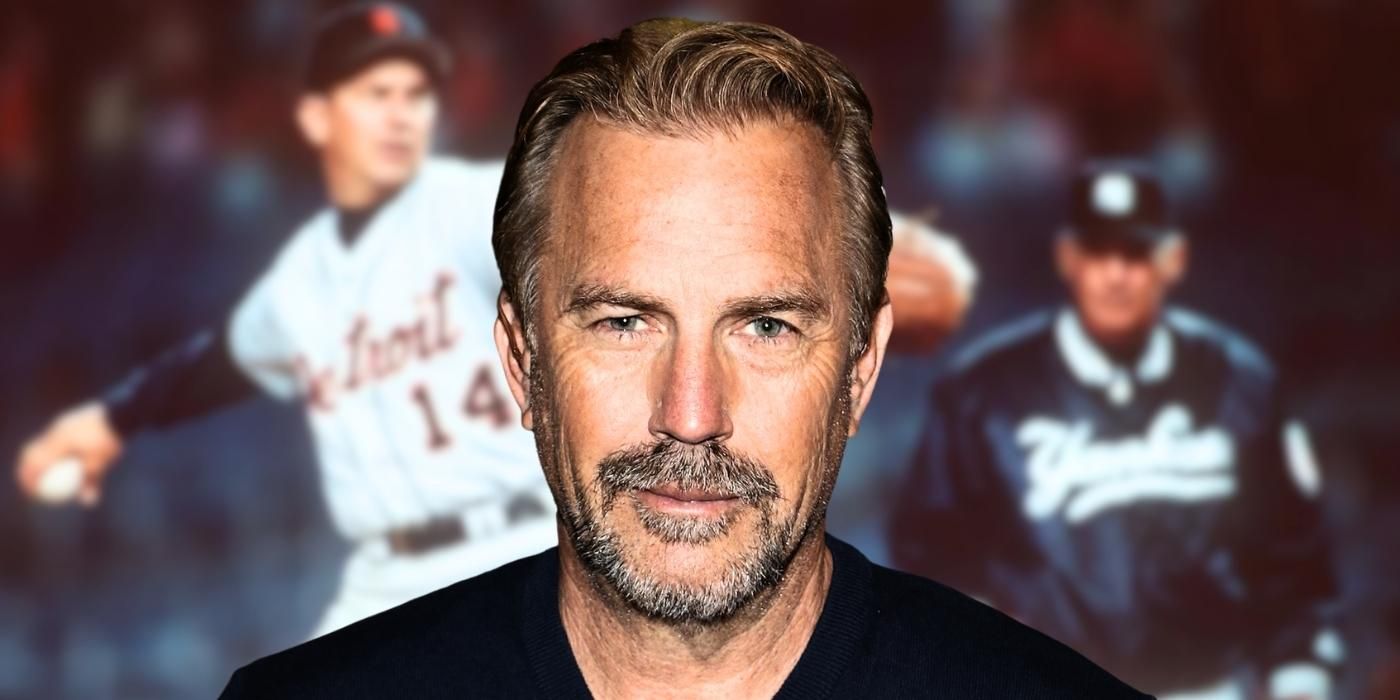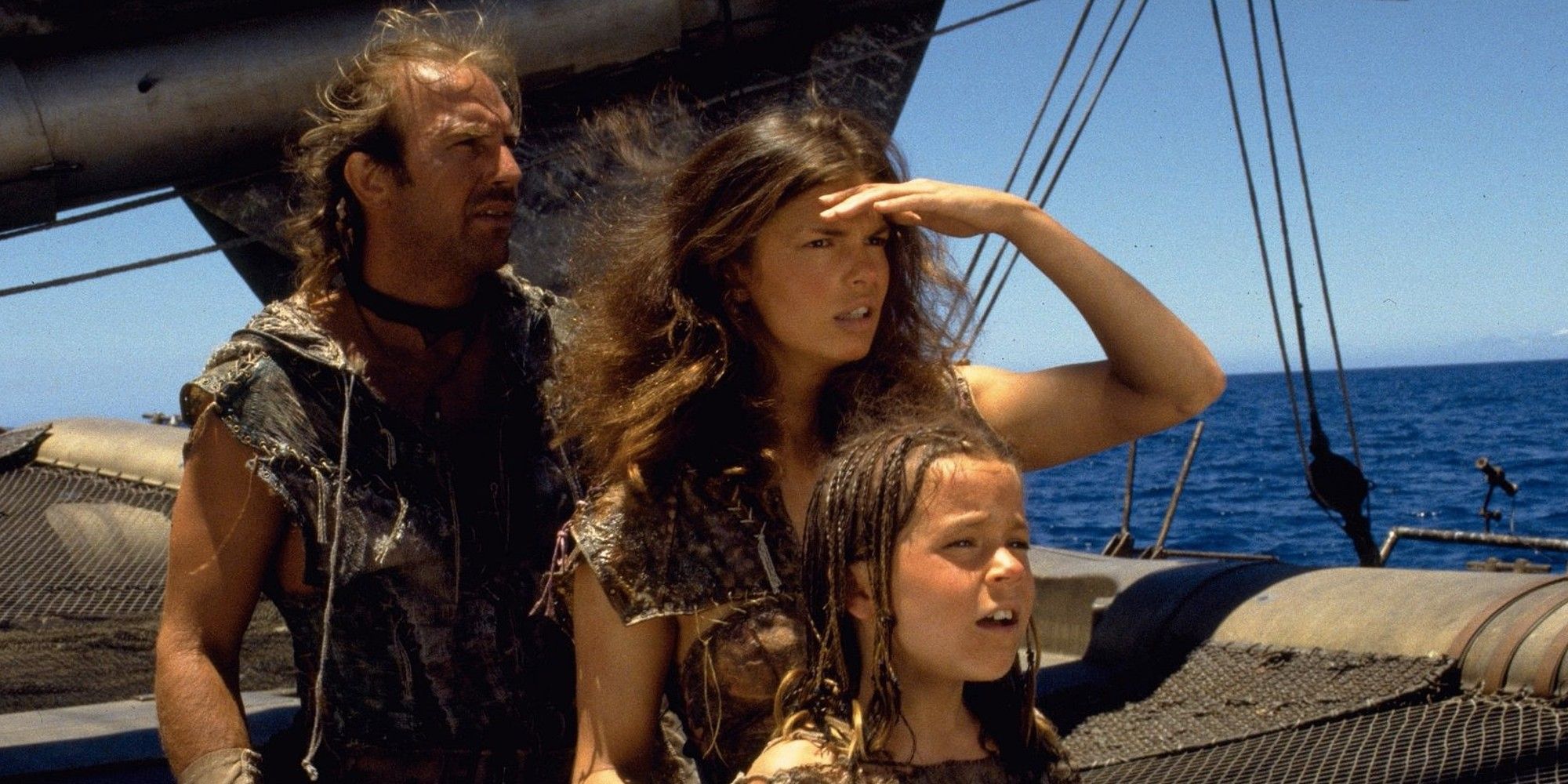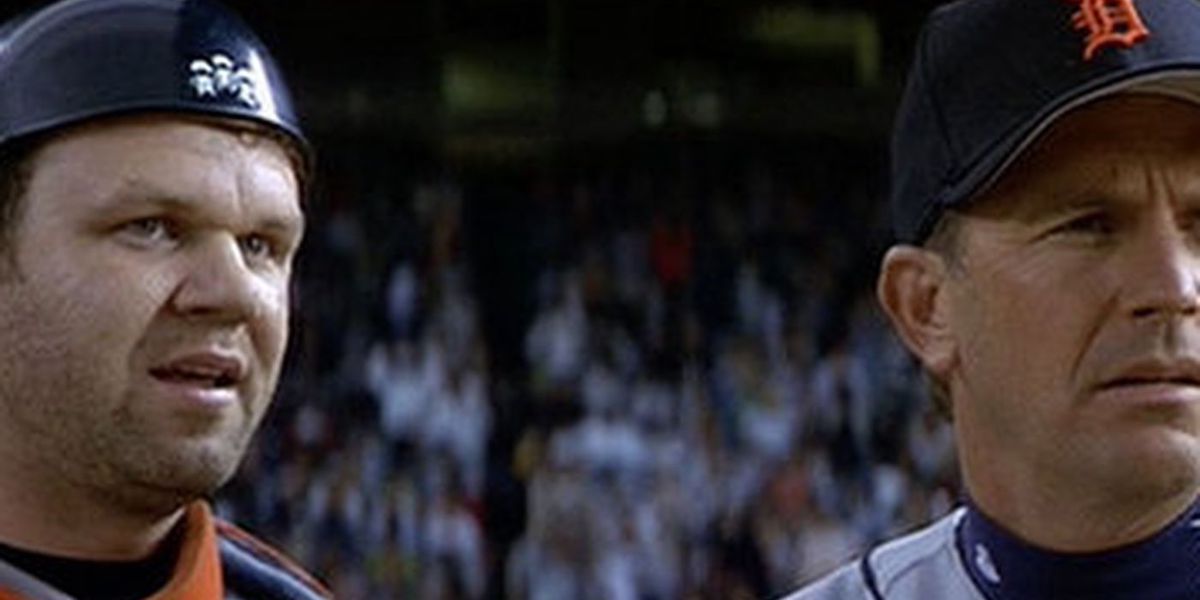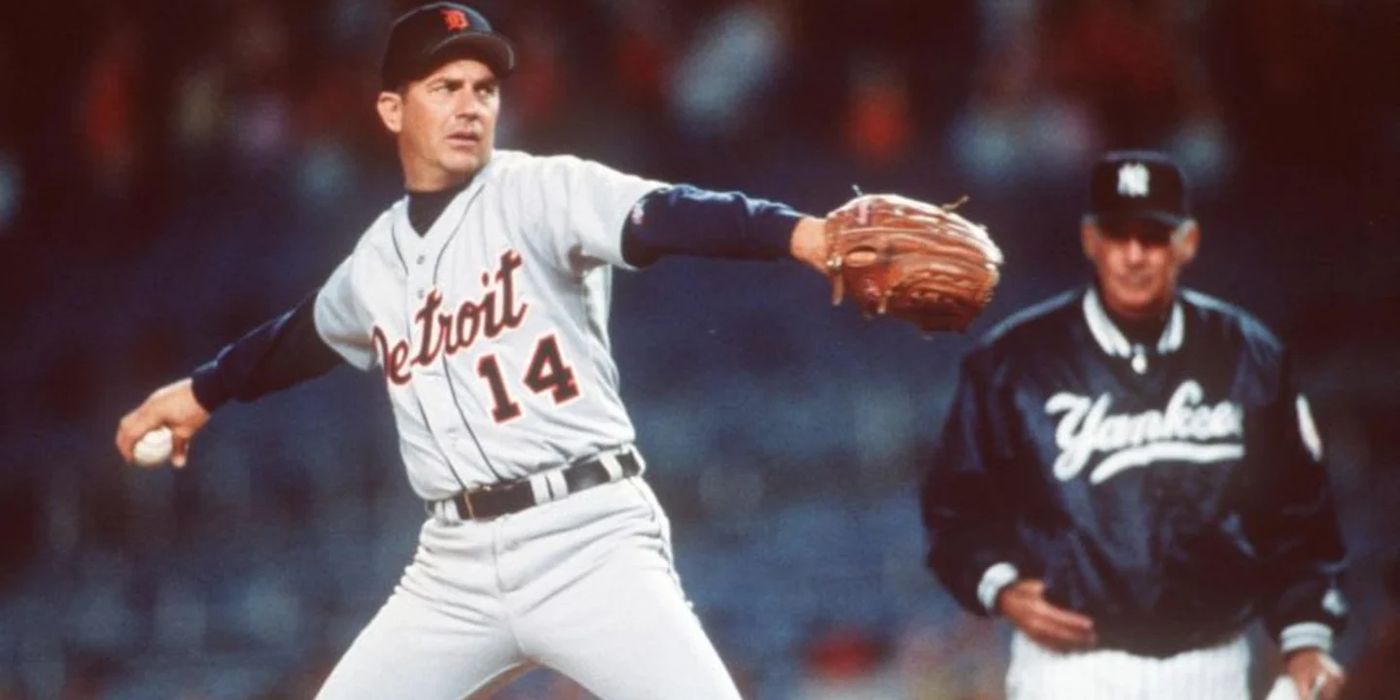Throughout his celebrated four-decade career, Kevin Costner has at times cultivated a reputation for being difficult to work with. As an actor who eventually transitioned into directing and producing, it's not surprising that he's a man possessing a specific vision and strong opinions. Though it was hardly the first time Costner clashed with filmmaking allies, his creative disagreements reached a particular level of public scrutiny before the release of Sam Raimi's For Love of the Game. After the brass at Universal Pictures requested specific editorial cuts to the film, Costner, in an alleged breach of contractual terms, voiced his disapproval and promptly soured his relationship with the media company.
Kevin Costner's History of Creative Conflicts
As it turns out, the actor has quite a history when it comes to creative and professional bickering. After working with director Kevin Reynolds in 1985's Fandango, featuring one of Costner's earliest starring roles, the duo teamed up again for 1991's Robin Hood: Prince of Thieves. With filming taking place as the actor and director's Dances With Wolves was cleaning up at the box office and generating major awards buzz, one may safely assume Costner was riding high on the filmmaking hog. It's been reported that the working relationship between the men began to fray during the film's production, specifically over its story, performances, and runtime. But whatever bad blood existed on Prince of Thieves would ultimately be forgiven as Costner and Reynolds collaborated yet again on what would become one of Hollywood's most famously troubled productions.
1995 saw the release of the action epic Waterworld. As the highest-budgeted film to date, featuring a slew of logistical challenges regarding location shooting, special effects, and too many cooks in the proverbial kitchen, filming Waterworld was anything but fun in the sun. With seemingly everything that could go wrong on a massive film going wrong, not the least of which included skyrocketing costs, uncooperative weather, and destroyed sets, Costner and Reynolds hit a breaking point in their professional relationship. The director eventually quit the production after an allegedly explosive argument with his lead actor. Before Waterworld hit theaters, Reynolds famously told Entertainment Weekly, "In the future Costner should only appear in pictures he directs himself. That way he can always be working with his favorite actor and his favorite director."
Fortunately for the collaborators, however, time healed their wounds and they've since rekindled their working partnership. Reflecting on his difficulties with Kevin Reynolds, Costner has said, ”It happens, especially when the stakes are as high as they were with Waterworld. But out of fire comes steel. And I’ve always had a real belief in him as a director.” Reynolds echoed the sentiment with, "There was so much pressure on the film itself because at the time it was the most expensive ever made. The press were after us from early on, willing us to fail. He asserted himself. We had discussions, then arguments, and then a falling out. It’s not something I want to go into in detail. But it took years for us to get over it."
'For Love of the Game' Became Tabloid Fodder
Four years after the notorious production and reception of Waterworld, Kevin Costner signed on to Sam Raimi's romantic drama, For Love of the Game. He played aging MLB pitcher, Billy Chapel, a Detroit Lion coping with an injury and finding himself at a crossroads in life. While pitching against the New York Yankees in what would go on to be a perfect game, fully aware that his time in the athletic spotlight is dwindling, Billy's mind wanders to memories of his career and past relationship with Jane (Kelly Preston), who he's just learned has taken a job in London.
For his part as an undeniably powerful player in Hollywood, Costner waived his $20 million salary in favor of receiving a back-end percentage of the film's box office take. The star was also granted final cut, but such a privilege would be granted on two conditions: For Love of the Game had to be rated PG-13 and run no longer than 130 minutes. In common practice, Universal simply hoped to reach the largest possible audience with the film, a prospect considered more likely with a rating allowing for more admissions and a runtime allowing for more daily screenings. But as fate would have it, the sports-centric drama became the subject of tabloid fodder before it even hit theaters.
Kevin Costner Shaded Universal Before 'For the Love of the Game's Release
In an interview with Newsweek published a week before For Love of the Game hit theaters, Kevin Costner threw shade at Universal Pictures. Having made editorial decisions that would shorten the film's runtime and ensure a PG-13 rating (some expletives and a nude shower scene were cut), Universal ran afoul Costner, who ultimately voiced his steadfast disapproval and disappointment. In criticizing the cuts to the film, the actor said, "For Universal, this movie has always been about the length and the rating. It's never been about the content. And you feel a studio would want to release the best version of the movie, not the one they think appeals to the biggest common denominator."
Shots had been fired, and Costner's comments to Newsweek prompted a swift and retaliatory response from then-Universal Pictures Co-Chairman, Stacey Snider. "Kevin's not the director and it's not fair for him to hijack a $50 million asset," she told the L.A. Times. "I realize this is very much about principle for Kevin, but principle doesn’t mean that you never compromise. Our feeling is that we have backed the filmmaker, and his name is Sam Raimi, not Kevin Costner." In contrast to Universal, Sam Raimi publicly sided with his lead actor in expressing, "I agree with Kevin--I miss the lines too. But the MPAA wouldn’t allow it under any circumstances if we wanted a PG-13. I understand Kevin’s feelings."
Regardless of the public nature of Costner's comments, one can't help but empathize with the sentiment behind them. As an actor who's dabbled behind the camera, and in no insignificant way, it's perfectly understandable that he'd prefer the film to stay true to itself and avoid the often artistically compromising nature of entertainment as it relates to business. He further defended his statements with, "Universal wasn't even willing to try to fight the ratings board. They said it wouldn't do any good...the love of the movies, I believe, is waning in Hollywood. And it's given over to commercial instincts."
Kevin Costner and Universal Parted Ways
Unsurprisingly, the drama between Costner and Universal Pictures took a toll, even after the media giant's attempt at a peace offering. Stacey Snider recalls, “We said, 'If you feel cheated, we’ll write you a $20-million check today,' and he turned us down.” The actor said of his strained relationship with Universal, "The studio and I don’t even talk. They don’t want to talk to me. I’ll never forgive or forget what they’ve done.”
Aside from the actor's revealing interview with Newsweek, he largely avoided participating in the film's press tour, agreeing to an interview on The Oprah Winfrey Show but nixing appearances on several late-night talk shows. When all was said and done after the film's debut, For Love of the Game grossed a middling $46 million on a $50 million budget and received lukewarm reviews. In the twenty-four years since, Kevin Costner and Universal Pictures would cross paths on just one film: 2002's Dragonfly.




